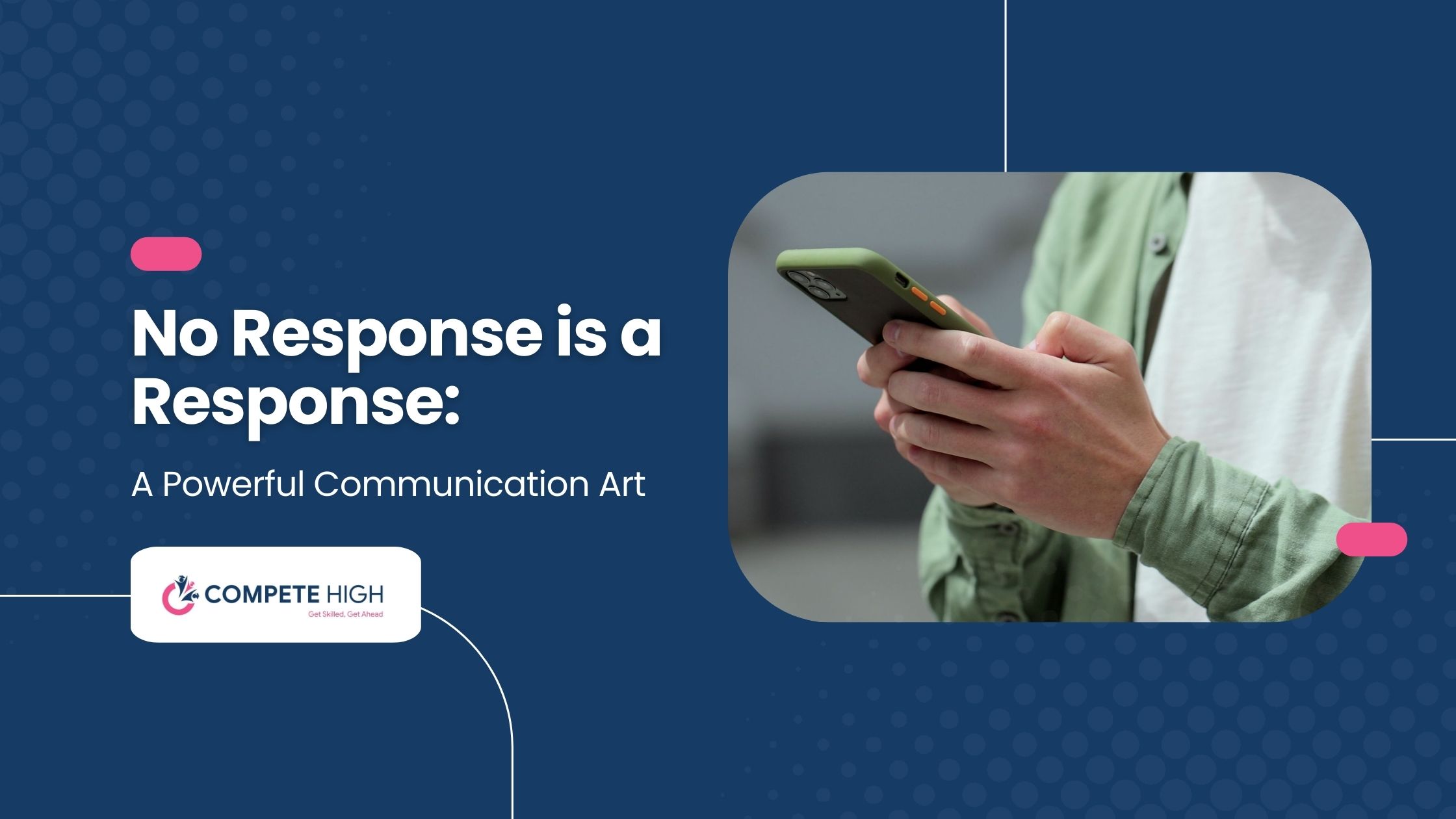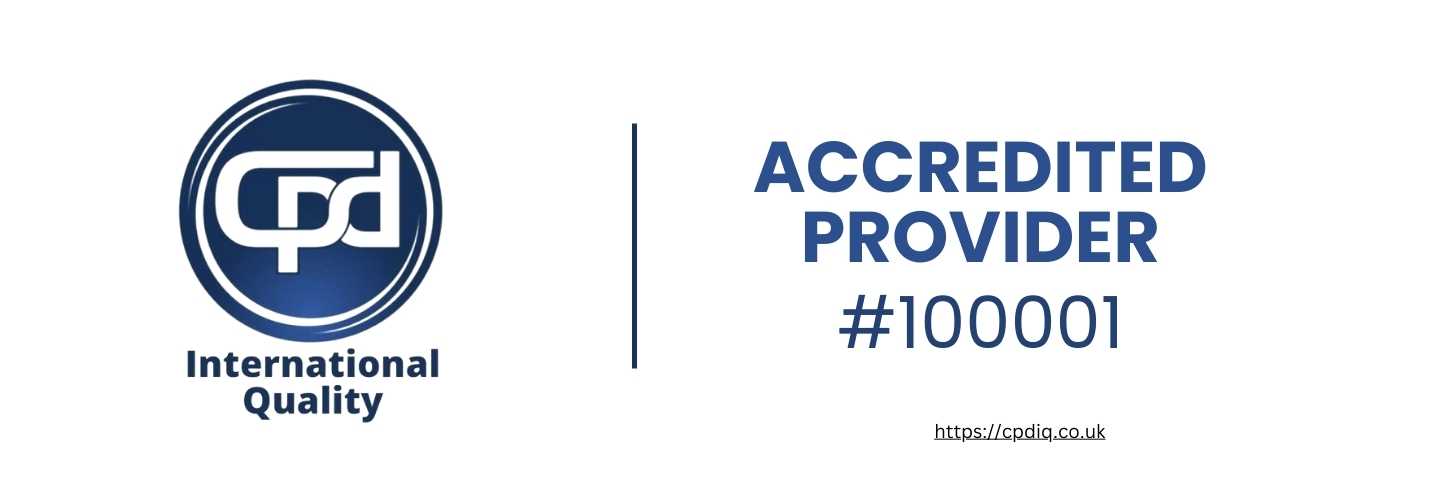
At times, a person's silence is louder than their voice. In this modern world overflowing with texts, calls, and social alerts, looking away or opting to remain silent can be more profound than any answer. Whether avoiding a toxic text message, not reacting to one in a heated meeting, or not posting on social media, silence has transformed into eloquence, making "no response is a response" a gentle yet effective means of interaction. In fact, no response is a response — and it's a powerful one.
Opting to use silence in an intentional manner has transformative effects when it comes to how boundaries are set and dynamics are shifted in both a personal and professional environment. Using silence as a tool has proved to be amongst the most effective in one's daily life. Many have come to understand that no reply is also a reply, and sometimes, no response is the best response when a situation doesn’t warrant more energy.
How "No Response is a Response" Came to Be
What Does It Mean?
The phrase 'no response is a response' has gained positive traction in relation to contracts of relationships, work environments, and social media. In the simplest of forms, opting not to respond — or as some say, no respond or no response — speaks volumes; it is termed as, for as long as no words are exchanged, they are still in communication, eye to eye. Some even ask, “is no response a response?” And the answer is often yes — no response is a response and it's a powerful one.
When used deliberately, silence can convey powerful messages. It can show disapproval, reluctance to participate, or even the need to protect one's peace. No.response is a response psychology suggests that in emotionally charged environments, silence can be more effective than engagement. It may also be a means of exercising control or setting a boundary without adding fuel to an already tense situation. This description is not about being passive-aggressive or emotionally manipulative; rather, it's about calculated non-response when the response wouldn't bring about any meaningful value.
When people are always expected to be connected and available, choosing not to engage in interaction can be jarring. Applying emotional intelligence, we often find that no response or no respond can be one of the most powerful tools to draw boundaries, enforce self-respect, and regulate one's emotions. Silence no response is a response that shifts the dynamic quietly but clearly. For some, no response is a rejection, and for others, sometimes no response is the best response.
Its Historical Roots
The notion that silence holds meaning is not a modern concept. Across different societies, silence has been regarded as both wise and one of the most powerful acts of defiance. In ancient philosophy, Taoism teaches that stillness and quiet are essential to understanding the world. In Zen Buddhism, silence is regarded as a form of enlightenment. In the Western World, proverbs like "silence is golden" speak to the importance placed on not speaking when not necessary — sometimes, no response is also a response.
In the area of psychology, non-verbal communication has received a lot of attention and research, even down to silence. Depending on the circumstances, silence can represent empathy, refusal, shock, or authority. Sometimes, it is argued that what is not said may hold a much heavier burden than what is articulated. This opens up the discussion on no response meaning — and how different individuals interpret no response or respond differently.
In the realm of philosophy, calm and restraint are what stoicism advises us might be more appropriate than reacting emotionally. The Stoics believed that the only things worth caring about are the things you can control — your actions — and everything else is needless stress. A no response is a response and a powerful one meaning lies in that very stoic control — silence can be the action that saves one's peace.
Silence is an underused tool in conflict resolution. It has historically been known as a de-escalation technique. Some allow us to think; some reduce the tension and argumentative fuel the controlled silence can bring. Whether with no response yet, no responce, or even the intentional pause in a moment of chaos, the quiet answer often becomes the strongest one. As they say, sometimes the best response is no response — and in many moments, that's where clarity finds its voice.
The Psychology Behind Silence
Emotional regulation silence
An individual deciding not to respond at all has a clear-cut advantage by avoiding emotional outbursts and retaining emotional control. When emotions are high, especially because of provocation, criticism, or some no-brainer manipulation, a person choosing to act on such emotion is usually associated with worsening the situation. Impulsive reactions are often one-upped.
Silence allows for one to literally take time to think, reflect and then choose whether to act with a response or not. Being calm and collected in the heated moment usually means you possess emotional intelligence, and that is the goal here: managing emotions and choosing to respond rather than react.
In psychology, silence relates to containment, a form of self-restraint. It isn't about being cold or distant; it is about being composed. Instead of adding to the situation, you put an end to it by refusing to increase the tension. No response is a response, and not responding is a response that can carry more meaning than words. For those wondering, what does no response mean in these situations—often, it's a statement in itself.
Power Dynamics and Silence
Silence redistributes the power in the conversation. Remaining silent, especially after something provocative is said, shows that you are not easily thrown off balance or played with. This may frustrate the other person, but it works more often than not.
In some contexts, silence can exert control or dominance. Leaders tend to take long pauses when negotiating in order to pressure other negotiators without saying anything. Other times, ignoring toxic behaviour does send a message: "I refuse to engage with this behaviour." This is an example of the power of not responding.
Silence can also project confidence. It declares, "I know my stance, and no arguments are necessary." More often than not, this form of restraint is respected more than an aggressive, forceful retaliation. No reply is a reply—a confident, self-assured one. Why no response? Sometimes it’s about self-worth. Is no response a rejection? Possibly, but it can also be about protecting your peace.
The Importance of Boundaries
Above all, silence is effective as a boundary. It tells the other person that this is off-limits: there is no room for discussion. This matter does not require my energy. This is where I stop. No response means this is my limit.
Encountering manipulation, gaslighting, and persistent disrespect often leads to silence as a coping mechanism. Fighting back, you can end up losing yourself emotionally and mentally. No response is a powerful response rather than engaging with chaos. Why no reply? Because engagement isn’t always necessary.
Restoration of dignity is also possible without being direct. Responding to someone in silence can often do more good than bad and can be kinder. Leaving a non-conducive conversation enables setting boundaries, and boundaries are meant to be established. Sometimes no response is the best response essay-worthy, especially when you reach out and get no response. That moment of silence? That lack of response? It’s the answer.
And how to respond to no response? Often, you don’t. Because when no response is a response, it’s an intentional message. Is no response the best response? In many cases, yes. It's the power of no response in action.
And just like the question, “Choose the best response to the following question. Which letter is always silent?”—sometimes the answer is about recognizing what doesn’t need to be said.
When Your Silence Speaks
In Personal Relationships
Silence is often taken out of context within relationships. Intentionally applied silence speaks volumes within a relationship. Silence is a response, often overlooked.
Repeatedly coming face-to-face with a disrespectful partner, say, through manipulative acts like lying or silence, is more potent than arguing. When someone doesn't respond, it's often more telling than words. Repeatedly arguing can be more exhausting. You hit the pause button on encounters that drain you.
Responding in silence helps break the cycle of self-perpetuating manipulative actions. Opting for silence frees one from strife. No response is a response meaning: it’s a boundary, a form of clarity. The totality of choice marks a declaration of taking control.
Silence combined with discipline is potent for walking away, unfollowing, or coping by actively removing oneself from perennial dumping sites for trash. No replies can speak of dignity and preservation.
In Digital Communication
Amid the unprecedented rise of messaging apps and social media platforms, as well as emails, no reply means more now than it ever did—the power of not responding to a text is undeniable. Not responding to someone is more noticeable than ever before.
Whether deliberately choosing not to respond to a direct message, wishing to leave someone "on read", or opting not to comment, all of the previously mentioned options can convey defined meaning; in this case, meaning power. Words such as disappointment, disinterest, or, more strikingly, boundaries, can be communicated.
In the world of modern, sensitive psychology, this is especially the case when one is attempting to provoke an emotional reaction from you. Why no response is the best response in such situations lies in the peace and power it preserves.
This may, in certain instances, be taken as ghosting, especially when someone applies the term to a conversation or relationship that has been going on for an extended period of time. What does no response is a response mean when it's done with intention? It means protecting one's peace.
The truth is that there is a distinction between ghosting out of accountability and choosing to remain quiet to safeguard oneself.
Not responding to online debates, abusive comments, or DMs that make you feel uneasy or way too comfortable is a border, and being quiet in this instance is not a negative thing. In fact, it leads to the decision to let a person enjoy peace. No response is a response because no response to text means you’ve drawn a line.
In Professional Settings
One of the more difficult places to have communication is in the office or an organisational setting, but not responding can be just as important as answering. Not all emails deserve a reply. Some of them are intended to provoke and hamper work. In such cases, if they wanted to they would no response is a response—let silence speak for itself.
Not reacting to gossip or toxic talk is professional maturity because no response is a response, as it shows restraint. Not reply isn't avoidance—it’s strategic. In meetings, keeping quiet instead of talking over someone shows self-control and can make your following contributions more important.
At times, silence can be used to highlight other people's lack of professionalism. If you do not respond to an incendiary message, the sender's conduct is on display without you needing to say anything. Is no answer an answer? Absolutely—it shines a light without words.
Strategic silence conveys tranquillity and assertiveness at work while reinforcing your personal boundaries without fostering interpersonal conflicts. Sometimes, any response would stir unnecessary drama, and silence remains wiser.
No need to respond can be a subtle cue that clarity has already been given. And when a guy doesn't respond to an emotional text, remember: actions—and silence—speak volumes.
Ultimately, no response is a response quotes often remind us: silence isn’t empty. It’s full of answers.
The Strategic Silence
When to Speak: Silence as a Restraint
The ability to master the art of silence lies in the intent. You need to ask yourself: Am I choosing not to speak because I am scared or because I am confident? If you choose to avoid confrontation out of fear, that isn't silence – it's anxiety.
Consider the consequences. Will your words support or undermine? Clarify or add layers of complications? Not every matter necessitates a reply, and at times, silence can be used to preserve time, energy, and one's dignity. No reply meaning can sometimes be more powerful than a spoken response.
Examples of Effective Strategic Silence
Leaders of teams often know when silence can be used to trigger strategic thinking. A leader pauses after asking a question and gives their team a moment to ponder instead of flooding them with thoughts and responses. In a conflict, remaining silent after someone's needlessly cruel comment can highlight their comment without getting into an argument. Sometimes, no answer is an answer, and silence in those moments can be more impactful than any reply.
Silence is a profound tactic amongst negotiators. By choosing to remain silent, they apply pressure on the opposite end to talk, create, or proffer ample logic and details. This approach, known as the "Silent Close", works because it creates deep thoughts and discomfort, forcing the other party to fill the silence with words. The psychology behind not responding is key in such situations, where silence can push others to provide more information.
Avoiding the Misuse of Silence
Silence is best when exercised with great caution. A form of punishment done to inflict pain or emotionally control someone is referred to as using silence. The silent treatment can inflict emotional abuse, and in relationships, if she doesn’t respond leave her alone is a good boundary to respect.
It stems from rational intent. To exercise healthy silence, the manner in which it is wielded must be respectful, calm, and boundary-setting.
When setting boundaries with silence, it is best to explain, "I need a minute to think about this," or even, "I simply do not feel comfortable discussing this right now." This clarifies the situation and ensures that while remaining silent, there is no harm. In some cases, no response will be considered as confirmation, meaning that silence can be a form of agreement or understanding.
The Flip Side: When No Response Can Be Harmful
In Personal Relationships
There is a distinct balance between using silence as a tool for empowerment and using it as a means for escaping difficult conversations and taking accountability. If a person tries to explain, empathise, and offer an apology, complete silence is likely to do more harm than good.
In romantic relationships, emotionally considerate neglect via silence can dismantle trust and connection. What does it mean when someone doesn't respond to your text? When silence is adopted as a means of weapon, emotional distancing and animosity are cultivated. It is important to differentiate between setting healthy boundaries and emotional stonewalling.
In the Workplace
In a professional setting, silence can lead to confusion or fear. How does a manager not listen to employee concerns or feedback? Does not providing feedback equally hurt the team? A lack of response will inevitably allow employees to feel neglected and unheard.
Likewise, failure to communicate during crucial parts of projects or after conflicts can hurt company culture. It can be perceived as a lack of approval or interest, even when that is not the intention.
When to remain silent and when to be clear, transparent, and communicative is vital for leadership.
Response in communication is key in maintaining a healthy, productive workplace. 0 replies can leave people feeling ignored or disconnected, which can harm team morale.
In Social Justice and Ethical Issues
From a societal perspective, remaining silent can cause harm. When people decide to be quiet when faced with discrimination, abuse, or injustice, they remain complicit by default. The phrase "silence is violence" originates from the idea that not acknowledging someone's struggles or oppression permits it to persist unchecked.
When disregard and exclusion persist, it does become crucial to act. Words are not just impactful; in such cases, they are essential. Silence, in matters of life and death, must come with a great sense of duty and responsibility.
What is the psychology behind not responding? Remaining silent in the face of injustice can have serious consequences. Are not response situations often allow harmful behavior to continue unchecked.
Striking A Balance Between Silence and Honest Communication
Different Ways to Communicate Through the Use of Silence
When silence is used properly as a powerful tool, it becomes the antidote for emotional repression or a tool for responsibility evasion. Clarity must be paired with effective silence to make it more impactful, which can be done by stating, "I need time to think" or "I would rather not respond right now." Further proving my point, saying, "I'd rather not respond right now," is better than going mute and withdrawing feedback in no response mode. Sometimes, no response is a response, and when they don't respond, it leaves room for more reflection and understanding.
Making an effort to voice out their decision allows the party concerned to view the situation from a punishing angle. Obliterating someone is not what is done; rather, space which allows the freedom needed to give the issue the respect it demands is provided. Problems should be taught, and approaches should not be shunned, but rather, there is importance in pausing circumlocutory harsh stills so there's a chance for better responses. In this way, “no answer is still an answer,” and the value lies in how that silence is handled.
A conversation should be resumed only at appropriate times, but as for the mute option, that can be used without mercy, and once it is controlled, distance often leads to improved resolution in understanding collapse. This strategy speaks volumes without the need for any direct words, and shows how "not answering is an answer" in itself.
Creating Room for Reflection Instead of Punishment
The use of silence as punishment is a situation everyone is familiar with and regards as the silent treatment. Rather, useful silence is defined as silence which allows room for contemplation both for the individual involved and for the other side, including the other party, as they together enable you to build emotionally strong walls strategically. When you don't react to a situation right away, there is an emotional pause that gives you the chance to process your feelings. Your reason can take center stage, and that pause, if treated delicately, has the potential to alter a situation from a clash to an insight.
Strong Does Not Equate to Being Mute
It is common for people to assume silence means passiveness and weakness. In reality, those who view silence in that manner lack emotional skills and maturity. Not retaliating to angry comments, insults, or disrespect is perceived by many as a weakness. In most cases, it is the complete opposite. It takes a lot of self-control to remain mute in the midst of fierce winds from an ego demanding to be soothed. When one opts to remain silent, it doesn't mean there is no voice; it simply means there is a choice on when and how to express it, demonstrating that silence, when used thoughtfully, is a form of strength.
Silence Around The World
Eastern and Western Cultures
Silence can have different meanings across cultures and societies. Silence in most Eastern societies depicts respect, restraint, and even wisdom. Japanese and Chinese pause during conversations, which might be awkward to Westerners but serves as a mark of thoughtfulness to them. Remaining mute during meetings signals one is a refined listener who speaks only when deemed necessary.
On the flip side, cultures in Western countries, such as the UK, the US, and certain regions in Europe, prefer directness and self-assertion. Not talking could translate as being weak or evasive. At work, a quiet person is considered not to be paying attention or is ignored completely, and worse, automatically labelled as disengaged when, in fact, they might be listening very attentively. This is similar to the situation when if a girl doesn't respond to your text, some might immediately think it's a sign of disinterest, but it could just be the person’s way of choosing not to engage right away.
With the globalization of cultures, such divides become even more prominent. The need to participate in some form may serve as a reward for the individual's effort of contemplation or humility. Often, no answer is also an answer—a response that many might overlook in favor of more immediate communication. In some contexts, silence is a subtle response that says a lot without uttering a word. If you feel like if they wanted to, they would, the absence of a response may signify that the person’s interest or commitment is not aligned with yours, and silence might speak louder than any words could.
Religious and Spiritual Views on Silence
Different religions focus on and view silence as an important aspect spiritually. Within Christianity, silence is attributed to stillness and listening to divine instructions. Silence in Islam stems from the wisdom and grace that one carries with oneself. Silence is something the Prophet Muhammad (peace be upon him) cherishes, and he states so by saying, "Whoever believes in Allah and the Last Day, let him speak good or remain silent."
Silence forms an identity mantra for Buddhism and Hinduism, unlocking pathways to growth. Silence enables one to awaken from worldly distractions and reconnect with inner serenity through meditation. The phrase “response to are not” resonates here because silence, rather than being the absence of a reply, can indicate a deeper, more meaningful response in many spiritual traditions.
In every belief system, silence is rarely interpreted as the absence of sound. It is the point at which change sets forth to begin making its mark.
'No Response' Cases in Practical Life
Text Messages and Emails
Consider the situation in which someone sends you a text intending to get under your skin with passive aggressiveness. Instead of responding and inflaming the situation further, you can choose to ignore the message, which is an answer in itself. It's a way of communicating that you refuse to engage with that energy. Also, they have an opportunity to reconsider their choice of words. This scenario perfectly illustrates how sometimes no response is a response.
In the same way, you might receive an email from a colleague that is sarcastic or overly critical. Instead of pressing the defend button and hitting "reply all", silence—or a strategically timed response later—will be far more productive. In some cases, showing restraint is the most professional way to prove that you aren't going to respond to childish antics. This could be a case of "if they wanted to, they would," where their lack of a better approach means silence is your response.
Social Media Comments and DMs
As is common in the world of social media, comments and posts demand instant reactions. However, not everything posted requires a response. For instance, if the comment is offensive, baiting, or simply meant to provoke, not saying anything is a stronger choice than hitting back.
Sometimes no response is a response—by ignoring trolls, you are not validating their existence. That moves you a step away from your peace while keeping the discussion on your terms. At times, "I do not need to justify myself to someone who is not paying attention" becomes the prevailing explanation during the silence. This is a perfect example of how if they wanted to, they would approach you differently.
Work-Related Activities
In business settings, silence is deafening and can illustrate focus and capture attention. When someone ponders a 'hot seat' question or throws a challenge your way within an audience group, taking your 'sweet time' to respond or simply remaining mute does change the balance of power. That is not an indicator of emotional reaction but of confidence to sit in discomfort. This strategy also ties into how sometimes no response is a response, as it shifts the dynamic in your favor.
As not all silence can be golden, at times, remaining mute during team politics or gossip clusters can be the most appropriate choice. Silence has a power of its own, and withholding it goes on portraying commendable professionalism and personal values. In these situations, not responding could be a clear answer, reinforcing that if they wanted to, they would behave differently, but you've chosen not to engage.
How to Build the Habit of Mindful Non-Response
Self-Awareness and Impulse Control
Learning to pause before reacting is a skill—and like any skill, it takes practice. The next time you’re about to reply to a provocative message or argument, ask yourself:
- What outcome am I hoping for?
- Am I reacting or responding?
- Will saying something escalate or resolve the situation?
This brief reflection can help you choose silence when it serves you better.
Mental and Emotional Tools
To master strategic silence, consider building daily habits that support emotional clarity:
- Journaling your feelings rather than sending that angry text.
- Practising deep breathing before responding to emotionally charged communication.
- Creating mantras or reminders, like “Not everything deserves my energy.”
These tools help create the emotional distance needed to respond wisely—or not at all.
Developing Confidence in Your Silence
Many people struggle with the fear that silence makes them look weak or rude. But with time, you’ll come to see silence as a self-protective boundary, not a retreat.
You don’t owe everyone an explanation. You don’t have to defend every decision. And not every message deserves a reply. Confidence in your silence grows when you know your worth doesn’t depend on constant engagement.
Silence as a Personal Power Tool
Silence isn’t empty. It’s full of intention, control, and clarity. When you use it consciously, it becomes a powerful part of your communication toolkit.
It allows you to:
- Control the pace of conversations and negotiations.
- Diffuse tension without confrontation.
- Protect your emotional space in challenging environments.
- Set boundaries without needing to fight for them.
The more intentional you become with your silence, the more it becomes a tool of empowerment rather than passivity. You’re no longer reacting to everything. You’re choosing your battles, preserving your energy, and speaking only when it counts.
Get Empowered: Learn to Communicate with Purpose
Mastering the art of “no response is a response” doesn’t mean shutting down or isolating yourself. It means developing the emotional maturity to know when silence protects your peace better than any word could.
If you're looking to build stronger communication skills, set better boundaries, and navigate personal or professional relationships with clarity, we're here to help. Our communication and emotional intelligence resources are designed to help you recognise your triggers, choose your responses, and lead with confidence. After all, if they wanted to, they would—and sometimes, no response is a response that speaks volumes in maintaining your peace and setting healthy boundaries.
Take charge of your voice—by choosing when to use "no response is a response" and when to let silence say everything.
Conclusion
Silence is never just silence. It’s a signal. It can mean “I don’t agree”, “I’ve moved on”, or simply “I value my peace.” Whether it’s setting a boundary, pausing for thought, or choosing not to engage, no response is a response—and often, a powerful one.
Use it wisely, and it becomes one of your greatest strengths.








